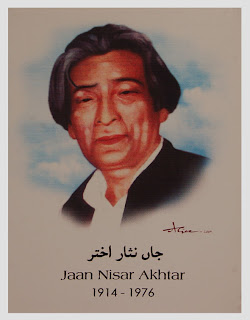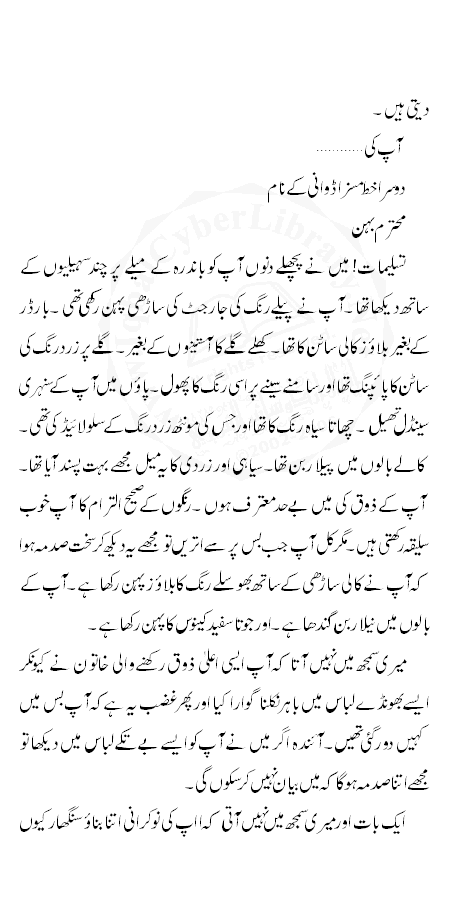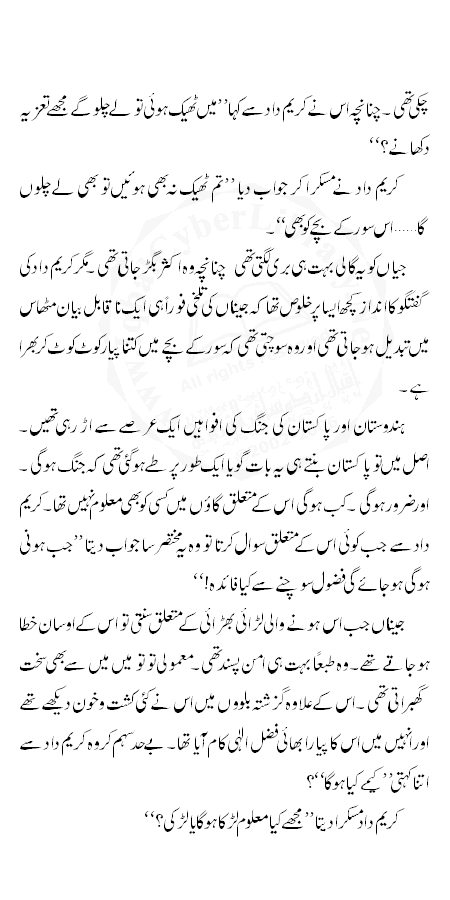Makhdoom Mohiuddin (Urdu: مخدوم محی الدین) or Abu Sayeed Mohammad Makhdoom Mohiuddin Huzri (February 4, 1908 – August 25, 1969) was an Urdu poet and Marxist political activist of India. He was a distinguished revolutionary Urdu poet. On February 4 and 5, 2008, a slew of programmes were organized in Hyderabad to mark his birth centenary celebrations in which top writers like Vice-Chancellor of Mahatma Gandhi Antarrashtriya Hindi Vishwavidyalaya, Vibhuti Narain Rai, scientists like P. M. Bhargava and Vice-Chancellor of Hyderabad University Syed E. Hasnain participated.
Mohiuddin was born in the village of Andole in Medak district in the princely state of Hyderabad, India.
He earned a masters degree in 1936 from Osmania University. He founded the Progressive Writers Union in Hyderabad and was active with the Comrades Association and the Communist Party of India, and at the forefront of the 1946–1947 Telengana Rebellion against the Nizam of the erstwhile Hyderabad state.
Makhdoom grew up to become an Urdu language poet of incredible versatility. He is best known for his collection of poems Bisat-e-Raqs (The Dance Floor), for which he was awarded the 1969 Sahitya Akademi Award in Urdu. His published works include an essay "Tagore" and his Poetry, a play, Hosh ke Nakhun (Unravelling), an adaptation of Shaw's Widowers' Houses, and a collection of prose essays. Bisat-e-Raqs is a complete collection of Makhdoom's verse including his two earlier collections Surkh Savera (The Red Dawn) 1944, and Gul-e-Tar (The Dewdrenched Rose) 1961.
He is known as Shayar-e-Inquilab' ('Poet of the Revolution'). His ghazals and lyrics have been used in many Hindi films. Among his notable is the romantic ghazal: Ek Chameli Ke Mandve Taley and Phir Chhidi Baat, Baat PhooloN Ki.
Makhdoom had a mixed childhood. His father died when he was just six years and mother got married to another man. His paternal uncle took over his guardianship and ensured that he gets the best education and treated him fairly. Makhdoom was very kind to children and loved them a lot, since he got orphaned at very young age probably he very well knew the feelings of a child. He got his school and religious education in his village and later on moved to Hyderabad city for higher education (Bachelors and Masters Degree). He settled down in Hyderabad after completing his higher education and got involved in the fight for "Free India" against the British rule . He was the founder of Communist Party in Andhra Pradesh (southern) Indian state. Therefore he is also called as "Freedom Fighter" of India and has also rallied against the then Monarchy of the Princely State of Hyderabad to merge with India. The then ruler of Hyderbad, Mir Osman Ali Khan (Nizam) had ordered to kill him for awkening people for freedom and get rid of the Nawab or the princely rule.
He got married to Rabia Begum and had three children with her. The elder among his children is daughter Zakia Begum followed by two sons. The first son is Nusrath Mohiuddin, ex-employee of State Bank of Hyderabad, a well known poet, a member of CPI, secretary of Insaf Tehreek. The second son is Zafar Mohiuddin, works for Singareni colleries in Khammam district, Andhra Pradesh.
His daughter is the eldest among his children and Makhdoom had special love and affection for his daughter. She could not complete her school education due to pressure from elder members of her family as her father was always busy with trade union meetings campaigning for his communist party and public life. But he always presented her gifts whenever he returns from a foreign trip. She too loved her father very much and she died due to kidney failure and long illness on August 6, 2010.She was married to Syed Abdul Rahim Quadri and had three daughters and three sons.The eldest daughter is Manzoor Fatima,Farrukh Rahim Quadri(eldest son),Farida Ashraf Fatima,Tooba Anjuman Fatima,Anwar Rahim Quadri and Raoof Rahim Quadri.Makhdoom was very fond of photography and had a wealth of family photos.
Nusrath Mohiuddin has two daughters: the eldest Ayesha Siddiqua has a girl child named Nida Un Naser.The second Asma Siddiqua Khan has a daughter Tahniyath Unissa also known as Maryam and a son Mohammed Laiq Ali Khan alias Omer.Zafar mohiuddin has three daughters and a son. Their names are: Firasat Fatima (elder daughter), Aslam Mohiuddin (son), Afshan, Juveria.
Makhdoom died with a massive heart attack while attending a convention held by Communist Party High Command in New Delhi in 1969. He is remembered all over India for his dedicated work towards the upliftment of poor and fighting for their cause. Though he was the Chairman of Andhra Pradesh Housing Board for five years but he never owned a house.
He was also a member of Andhra Pradesh Legislative Council for 5 years and the most popular political leader across India. Among his close friends are: Raj Bahadur Gaur,Syed Sibte Hassan, Saher Ludhianwi, Shakeel Badayuni, Sajjad Zaheer, S A Dange. He had travelled almost all European countries that exists under the umbrella of Russia and also visited China. He also met Yuri Gagarin when he visited Moscow and wrote a poem on him.
In jail they were given very worse kind of meal. Once the party members found some insects in their meal, Makhdoom commented: Tell your jailor that we all here are vegetarian, we don't eat this non-vegetarian meal.
In jail he met Aamir, who was sent to jail by his lover's family mambers. He requested Makhdoom to help. Makhdoom replied: We should now start a lovers union, and the slogan should be, Lovers of the world, Unite! Later in jail Aamir learned about the Telengana Movement and Marxism and later on joined the struggle.





















































